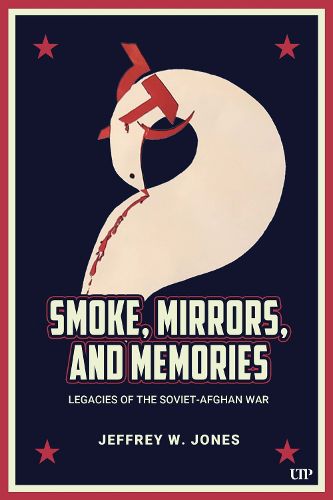Readings Newsletter
Become a Readings Member to make your shopping experience even easier.
Sign in or sign up for free!
You’re not far away from qualifying for FREE standard shipping within Australia
You’ve qualified for FREE standard shipping within Australia
The cart is loading…






This book studies the complexities of the SovietAfghan War from several points of view, calling attention to the experiences of those involved. The late-1979 Soviet invasion of Afghanistan compounded the lack of support among Afghans for their country's communist regime, which doomed the Soviet military undertaking from the start, and in turn contributed to the downfall of the Soviet system itself. Amid a battlefield of propaganda and disinformation from all sides that attempted to shape perceptions of the war, a clear undercurrent of opposition emerged within the USSR and grew over time, dominating the discourse during Mikhail Gorbachev's glasnost (openness) reform in the late 1980s. , Jeffery W. Jones conveys a broad picture without the narrative illusion of a seamless story amid the fog of war, analyzing varied accounts relayed by a wide range of sources. He argues that an evolving narrative and discourse on the war in the latter half of the 1980s helped pave the way for the collapse of the USSR as disillusionment with the conflict grew within Soviet society.
$9.00 standard shipping within Australia
FREE standard shipping within Australia for orders over $100.00
Express & International shipping calculated at checkout
Stock availability can be subject to change without notice. We recommend calling the shop or contacting our online team to check availability of low stock items. Please see our Shopping Online page for more details.
This book studies the complexities of the SovietAfghan War from several points of view, calling attention to the experiences of those involved. The late-1979 Soviet invasion of Afghanistan compounded the lack of support among Afghans for their country's communist regime, which doomed the Soviet military undertaking from the start, and in turn contributed to the downfall of the Soviet system itself. Amid a battlefield of propaganda and disinformation from all sides that attempted to shape perceptions of the war, a clear undercurrent of opposition emerged within the USSR and grew over time, dominating the discourse during Mikhail Gorbachev's glasnost (openness) reform in the late 1980s. , Jeffery W. Jones conveys a broad picture without the narrative illusion of a seamless story amid the fog of war, analyzing varied accounts relayed by a wide range of sources. He argues that an evolving narrative and discourse on the war in the latter half of the 1980s helped pave the way for the collapse of the USSR as disillusionment with the conflict grew within Soviet society.